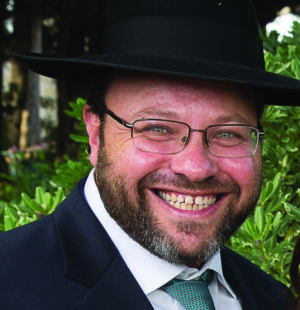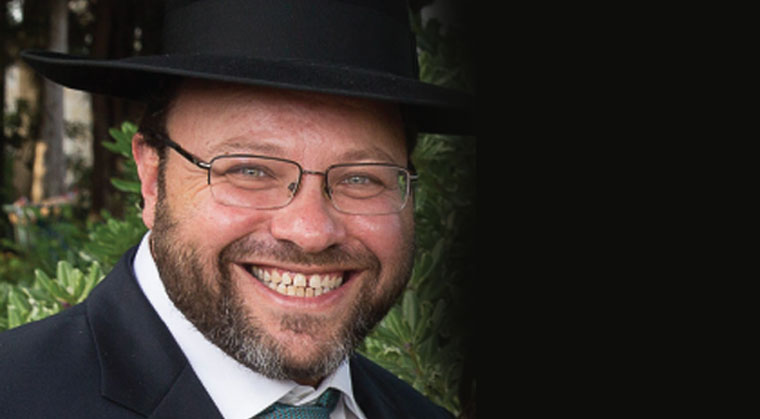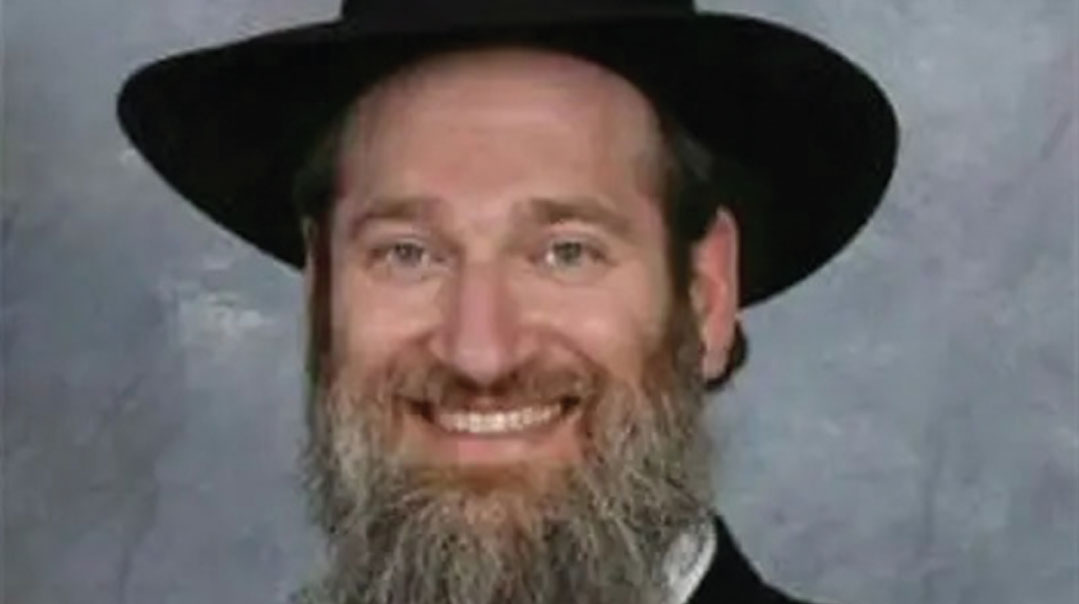Who Needs Abba?

Maybe we shouldn’t write off Abba so quickly…
I was the only man there. My wife had gone to Yerushalayim for the day and it was me and Elka, my six-year-old, arriving at her first-grade orientation before the school year.
So there I was with a bunch of mothers from Elka’s class. It was so cute, all of these former preschoolers holding tightly to their mother’s skirts, nervous about what this assembly would mean for them as they prepared for the next stage in their lives. I looked down at my beautiful little girl to share this special father-daughter moment.
She in turn looked up to me with her cute little eyes and adorable accent and said, “Daddy, you ken go ’ome now, eets just for imas…”
And then she led me ever so gently to the door — in case I didn’t understand her eengleesh.
I happened to agree with her on this point. Yet knowing that my wife would not be so happy with me leaving her there by herself, I tried to explain to Elka that I was like her ima for tonight. I was not convincing. Elka ran off to play with her friends. I stayed in the corner and caught up on my e-mail. She pretended I wasn’t there. I played my part well. When it was finally over, we reunited outside. I was her Abba once again, she was my Elka, and we walked hand in hand.
We are in the period of the Nine Days, the week of Tishah B’Av, that historical day of mourning for the tragic loss of our Temple, our land, and the closeness we had with our Father. In this period, Jewish law and custom instituted practices of mourning — minhagei aveilus.
We don’t eat meat or drink wine during this period. I miss meat. Not just Israeli meat, but a good slice of a Nebraska free-range, red-white-and-blue cow.
We don’t listen to music during this period of mourning. I miss music. My kids make a lot of noise in the back seat without the CD playing. My country drives are longer without the sounds of music making the hills alive.
Bathing and swimming are limited and cannot be done for pleasure. No kayak or nachal tours for me this week. The no-shaving thing doesn’t bother me that much, although my mustache has started to scratch me the past few days. The no-buying-new-clothing might be saving me some money, although it has certainly put a damper on my wife’s clothing business.
Our lives have changed for a little while. But in another few days it will be over. We’ll get past it. Summer vacation is just around the corner, and we will move on. But maybe we shouldn’t… Maybe we shouldn’t write off Abba so quickly…
Over the past month, which Chazal say will be a time of crying and mourning until we merit to return, I have heard heartrending terrible stories of young children dying in tragic accidents, of drownings, of a young girl my older daughter’s age being killed by a car, and of a tragic suicide by a sick teenager. Parents who will never again hold their children’s hand at gan, see them at their bar or bas mitzvah, or walk them down to their chuppah.
My eyes tear, my heart is ripped apart, my soul cries out. I can’t empathize, because I can’t imagine it. But I can’t turn the pain off, because it is so great. For these families, abstaining from meat, music, wine, and bathing are not just outward signs of mourning. They are expressions of the inner pain and loss. For them, life will never be the same. And as they experience the intensity of the tragedy that has changed their lives forever, they couldn’t eat a steak or think about swimming and enjoying themselves if you paid them. They have lost their most precious treasure and nothing in this world has any allure anymore.
There is an incredibly moving midrash on Eichah, the prophecy of Yirmiyahu that we read on Tishah B’Av. It describes Hashem coming to comfort the Jewish People after the loss of the Temple. The Jewish People, though, refuse to be comforted, complaining that although we had sinned, where was His mercy? What of all those who sacrificed, who sanctified His Name, the Torah we alone accepted, the songs and prayers we sang and the hopes and dreams to build the Land for His presence?
Hashem responds, “Do you think that I am not also in pain? That I do not also mourn? That I do not also need comforting?” The prophets then come to comfort Hashem, but Hashem sends them instead to comfort Yerushalayim, the city bereft of its inhabitants… its children once frolicking in the streets, its scholars singing words of Torah into the night, its Temple that once housed the presence of our Father. Yerushalayim as well fails to be comforted. There will be no comfort, the midrash concludes, until that return, until our enemies are destroyed, until we are once again reunited with our Abba in our home.
Perhaps the key word that we recite repeatedly on Tishah B’Av is eichah — “how?” It was asked by Yishayahu prior to the Churban and by Yirmiyahu upon witnessing the destruction. Yet Moshe Rabbeinu was the first to ask this, when he complained how difficult it was to carry Klal Yisrael by himself. He appointed judges to help him out, as per Yisro’s advice. And we responded, “The thing that you proposed is good.”
Rabbi Dov Zev Weinberger in Shemen Hatov suggests that the downfall and eventual destruction originated from this point. When Bnei Yisrael readily acquiesced to the new arrangement — rather than stepping up and protesting the loss of their connection to Moshe, and, thereby, the special connection to Hashem that Moshe alone could provide — they had already started down that slippery slope.
How could we have put a man like Moshe at a distance? Didn’t we understand that through him we could have had the greatest clarity and connection to Hashem? How could we just move on? It must be that the connection to Hashem was not so vital to us. We were already fading. We had begun to lose it. And it is still lost until today.
Hashem, though, has never lost it. Like a parent who suffers the loss of a child, Hashem mourns each day for His children to wake up, to come home, to invite Him back and to truly, from the deepest recesses of our hearts, feel the pain of the loss of the greatness of what we were meant to become. What we can still become. What we will become as soon as we truly return. As soon as He returns.
We’ve all been around frum Jews all our lives. How many times have I heard, or said:
“I don’t mind the Nine Days. I kinda like milchigs.” (You know who you are.)
“It’s not so bad without music, a little quieter around the house, I can listen to classes in the car now…”
“Life in America is really not too bad — it’s galus in a country of kindness…”
We are not mourning. Our loss isn’t real. Our child hasn’t died. Our home isn’t burned. Like our ancestors told Moshe millennia ago when he first said eichah: “The thing that you proposed is good — we’ll make do without you. We’ll have our distinguished wise men of understanding. We’ll move on. We’ll catch up with Abba at the end of the orientation.”
We haven’t caught up yet. Sadly, the “orientation” has left us disoriented and disconnected. But Abba is still waiting outside for us. We just have to realize that we need to leave. We need to ask Him to take our hand once again. We need to forget everyone else in the room and realize it’s time to come home. We don’t want any more tragic reminders of our mourning. Our Father doesn’t have to call, yell, or punish us anymore. We just have to stretch out our hand and walk together with Him.
Har Habayis is waiting. It’s the only orientation we need. It’s time to start our first semester. Are we ready to finally begin?
Originally featured in Mishpacha, Issue 772. Rabbi Schwartz, a former outreach professional, rosh kollel, and rav in New York, Iowa, Virginia, and Seattle, moved to Eretz Yisrael in 2010 where he is the rav of the Young Israel of Karmiel and a professional tour guide. His column will appear once a month.
Oops! We could not locate your form.










